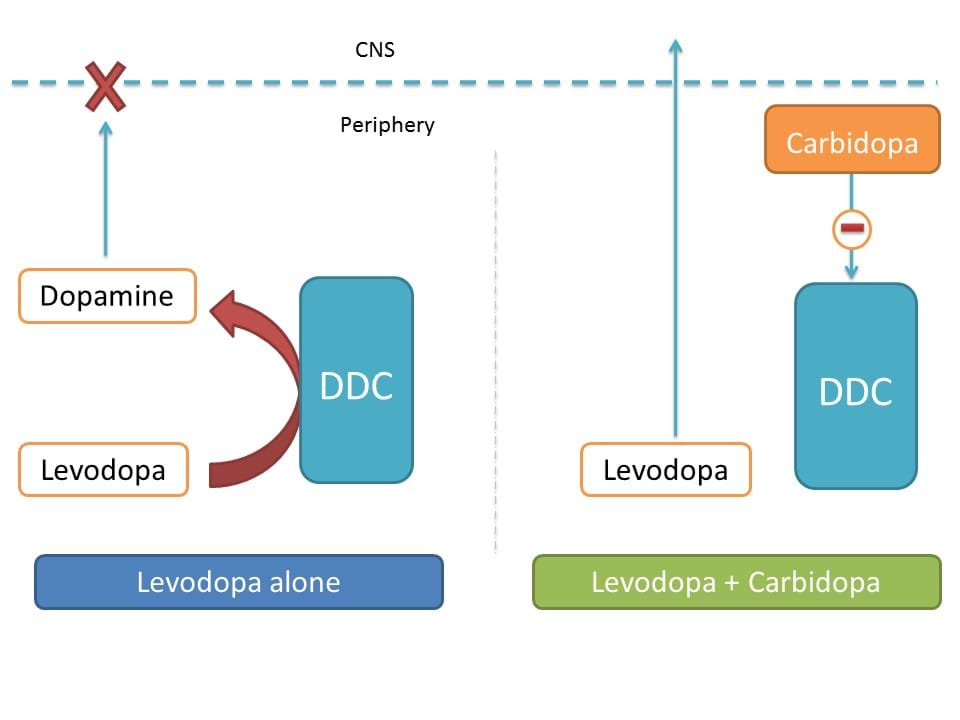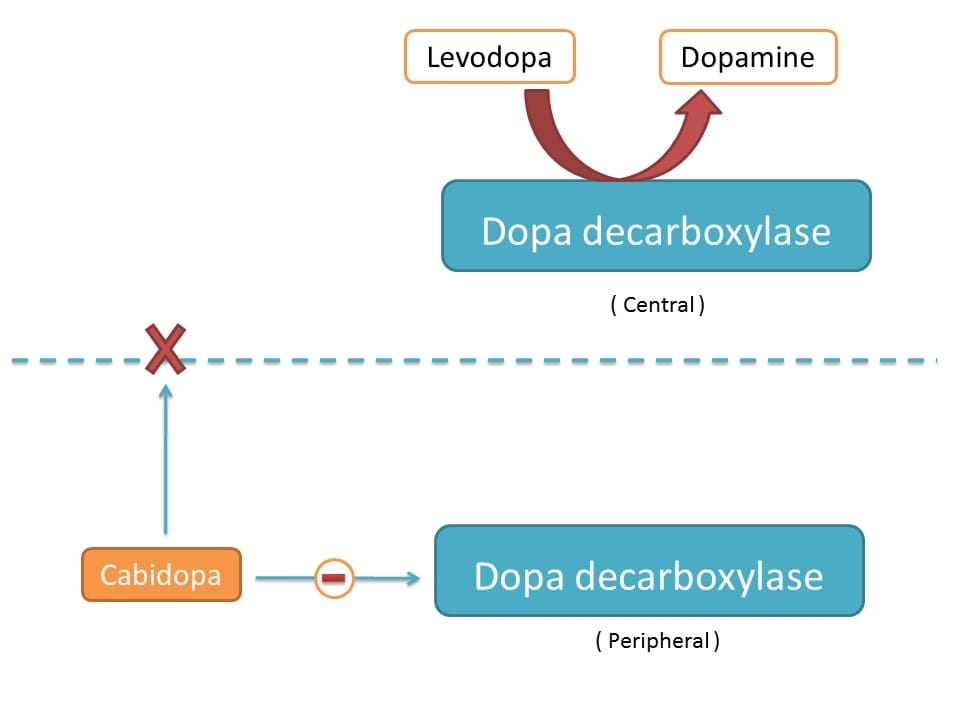Is carbidopa ineffective for Parkinson disease when given alone?
by egpat Posted on 25-07-2017
Yes. Carbidopa is not effective alone for treatment of Parkinson disease. It is an aromatic amino acid decarboxylase inhibitor that is co-prescribed with levodopa.
It is a structural derivative of dopa with a little modification of structure. It has additional methyl substitution at α-position and amino substitution on α-amino group.

Even it has modification of structure compared with dopa, the common structural feature of both of the compounds is L-aromatic amino acid.
Since both have common structural feature aromatic amino acid, both of these have affinity for L-aromatic amino acid decarboxylase also called as dopa decarboxylase(DDC). Carbidopa shows more affinity than dopa for peripheral DDC and thereby inhibits its action. In this way, peripheral metabolism of levodopa is prevented leading to more availability of levodopa in to brain.

Therefore, carbidopa is combined with levodopa to inhibit its peripheral metabolism and to increase its central availbility.
At the same time, carbidopa is not effective when given alone as it cannot cross the blood brain barrier.

The following video explains why carbidopa is given along with levodopa in the treatment of parkinson disease.